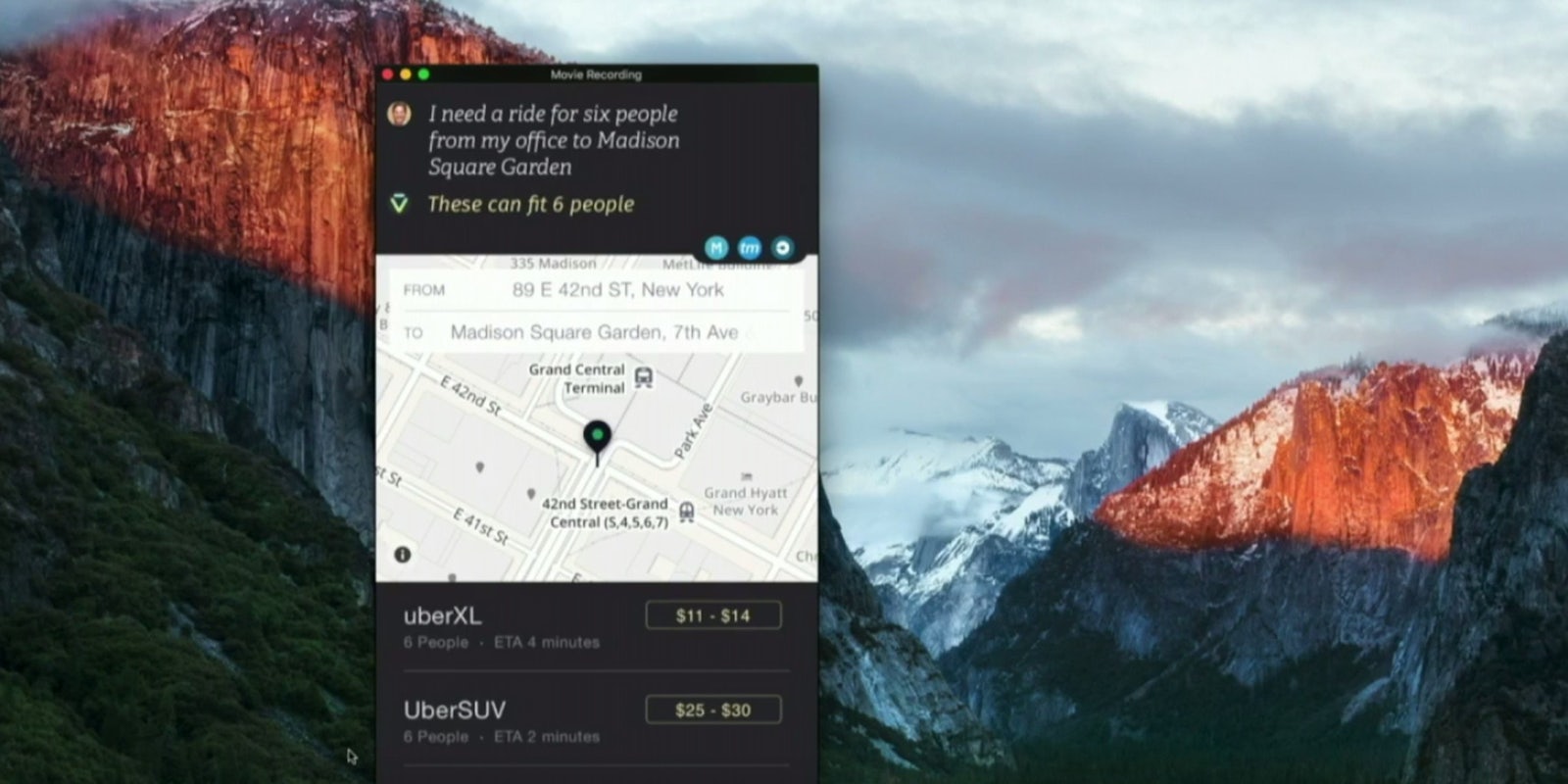Virtual personal assistants just aren’t smart enough. Siri still brings up web pages and apps when you try to command her to do something, and Facebook’s bots are laughably nascent.
Dag Kittlaus and Adam Cheyer are creating the most naturally engaging artificial intelligent assistant yet: Viv. And if anyone’s going to change the way our phones interact with us and the world, it’s them. The pair built Siri and sold to Apple for $200 million in 2010.
In relative stealth for the last four years, Viv made its public debut at TechCrunch Disrupt, a startup and tech event in New York this week. Kittlaus demonstrated Viv’s power to call an Uber, book a hotel room, and send flowers all with his voice, spending over $1,000 during his time on stage.
But the first real test of Viv was in the form of a pizza request. Earlier this year, the team in San Jose used Viv to order multiple pizzas with a variety of toppings, and the pizza arrived without anyone needing to touch the phone, the Washington Post reports.
Viv is different from other AI assistants in that it writes code on the fly. Engineers developed something called “dynamic program generation,” that understands the intent of a user and executes code on its own. Natural language software analyzes the words and generates intent, and once Viv understands a user’s intent, it creates a program automatically to execute your commands.
“Software that’s writing itself,” Kittlaus said. “This is a really important aspect of scaling the assistant.” Viv writes and executes customized code for each command in 10 milliseconds.
Instead of opening and closing apps, Viv’s intelligent technology will snake through the layers of your device, executing commands in the apps and services you need. It’s meant to become the intelligent layer of a mobile devices, removing the need to work your fingers when you want to order a new outfit for a wedding or call an Uber for a night out.
According to Forrester Research, people spend 80 percent of their time in apps using only five of them. App fatigue is, in many ways, what’s driving the mass adoption of bots. People don’t want to use multiple apps for different things, so AI or natural language bots can come in and control things independently. All we have to do is talk to them.
While Kittlaus and Cheyer are responsible for building the personal assistant that kickstarted the mobile bot revolution. They, along with third cofounder Chris Brigham, don’t have plans to sell their latest creation anytime soon. Viv reportedly spurned acquisition offers from Google and Facebook.
Viv aims to become an open system, the antidote to the walled gardens of app stores and services. Essentially, Viv may be what Siri could have been—an AI so advanced, it’s like getting a human to do things for you.


